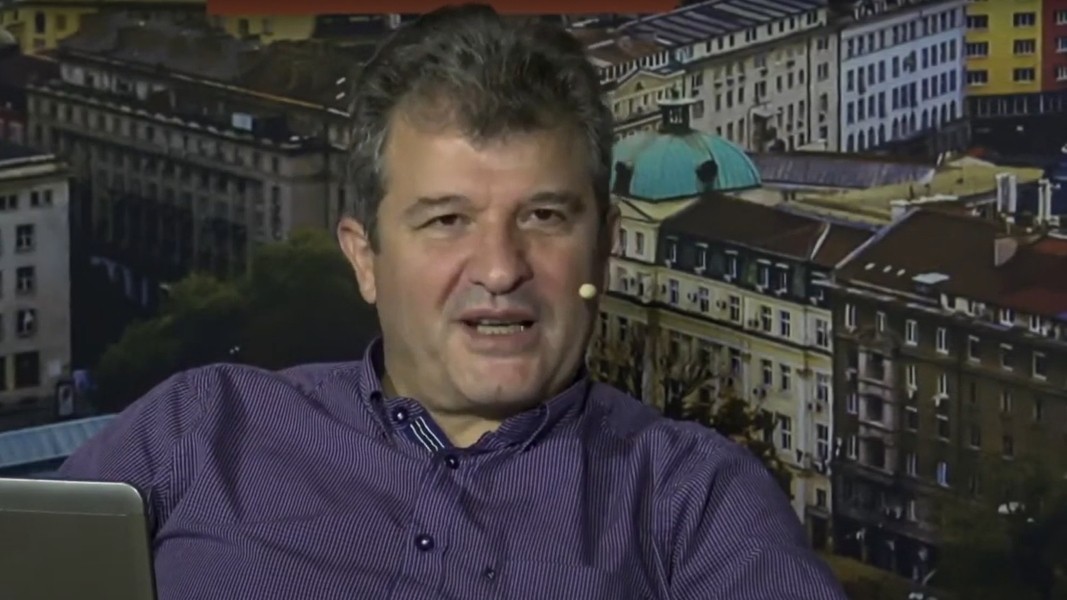85% of Bulgarians living abroad describe themselves as a person who donates. That is one of the findings in the only report of its kind of regarding charitable giving attitudes among our compatriots living in other countries by the foundation BCause, Bulgaria’s representative at the CAF (Charities Aid Foundation) international charity network. The data was presented in connection with the CAF worldwide symposium on 9 November with a focus on Bulgaria.
The Bulgaria charitable giving survey was conducted in September and October by quantitative online questionnaire among 244 Bulgarians abroad and 32 in-depth interviews. The three countries where the biggest number of respondents in the survey live are countries with sizeable Bulgarian communities – Great Britain, Germany and USA. “We also have respondents from Latin America, from Japan, from other Asian countries. As to Europe, it is represented exhaustively,” says Stoyan Mihailov from the company which conducted the study.

“There are several exceedingly interesting conclusions we can draw. The first interesting thing is the share of Bulgarians abroad who describe themselves as donors – 85%. That is a really high percentage, double what was actually registered in 2019, in terms of the number of people who make donations in Bulgaria,” Stoyan Mihailov says. “The second very important thing is, I think that Bulgarians abroad have a much bigger potential – in terms of both money and time – which they can donate to charity. One of our results shows that volunteers abroad who have stated they make donations to various causes, set aside an average of 20 days a year. The average sum one person donates is 300 euro.”

The share of people who make donations in Bulgaria is high – 72%, though few of them donate exclusively to Bulgarian causes. A big share of the respondents say that they make donations in the country where they live, as well as in Bulgaria, Stoyan Mihailov explains. “A quarter of the respondents state they only donate to causes in Bulgaria, so we can describe them as patriots.”
Quite a few Bulgarians donate money in third countries as well which are not connected with their place of residence. “That is an unusual thing for us because Bulgarians living inside the country tend to only make donations to causes in their country,” Stoyan Mihailov says.
According to BCause the survey shows that Bulgarians living abroad make donations mostly for emotional reasons, and what matters to them is to have transparent accountability of the results for the cause they have joined.
“In Bulgaria, and abroad, Bulgarians support most of all calls to help sick people. 49% state they make donations in campaigns of this kind,” explains BCause Executive Director Elitsa Barakova.

“36% state they make donations to organizations they are member of, or organizations they have known for a long time – strategic giving, which is repeated often and with informed motivation. It is in this that endowers abroad outdo us, donating mostly to organizations which meet this need to make donations in different spheres – environment, the social sphere, culture, law, the latter being practically terra incognita for donators in Bulgaria.”
Confidence and trust are of utmost importance in charitable giving. In Elitsa Barakova’s words, however, the level of communication of the Bulgarian causes and the well-functioning trustworthy organizations to this charitable activity, moulded in the conditions of societies outside the country, is not good enough.

Another problem the survey highlights is the fact that, when they support a Bulgarian cause, there is no easy way to obtain the kind of tax relief Bulgarians have in the country where they live.
The Covid crisis has made Bulgarians in the country much more generous, though the increase in charitable giving is also due to the Bulgarians living in other countries.

“In each campaign around 15%-20% of the donations are made by people living outside the bounds of the country. Bulgarians abroad seek out causes, and the Covid situation was just such a global cause. But we are hoping that these donors have a more permanent connection with these organizations and that they will continue to be in aid of Bulgaria after the pandemic is over.”
Photos: @BCause.bgThe Bulgarian minority in Romania marked a significant event with the official opening of the Bulgarian Inn in the village of Izvoarele (Hanul Bilgarilor), Teleorman County (Southern Romania)- a locality with Bulgarian roots dating back over 200 years...
The 14th edition of DiVino.Taste, Bulgaria’s leading forum for wines and winemakers, will take place from 28 to 30 November at the Inter Expo Centre in Sofia. Over 80 producers from all wine regions will participate, offering tastings of around 600 of the..
Minutes before the second and final reading, at the parliamentary budget and finance committee, of the state budget for 2026, the leader of the biggest party represented in parliament GERB Boyko Borissov halted the procedure and sent the draft bill..

+359 2 9336 661
